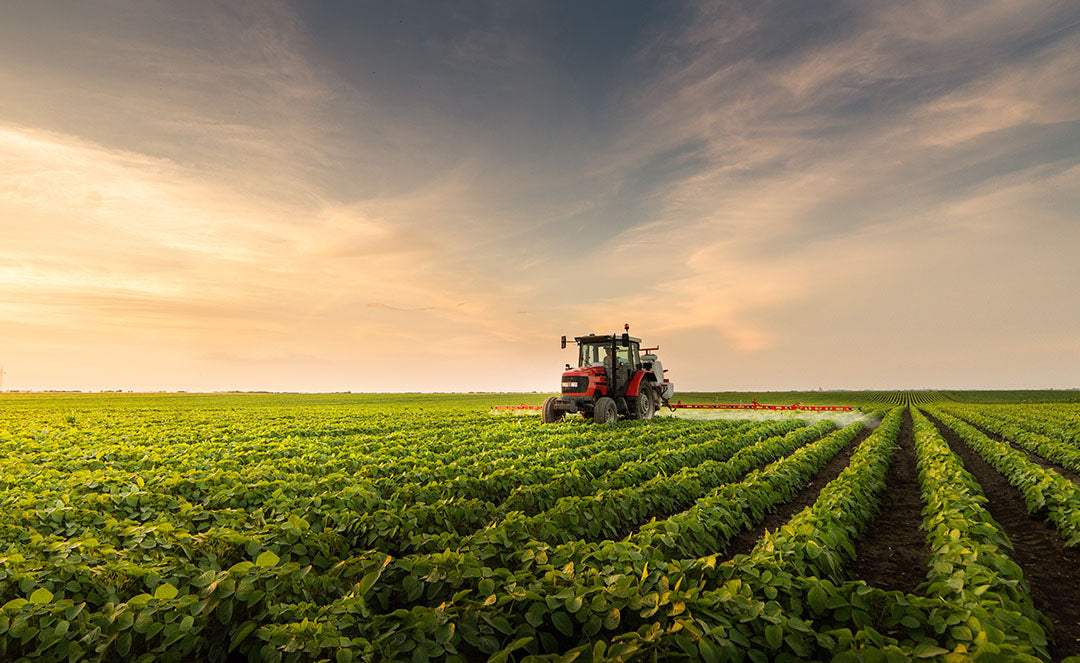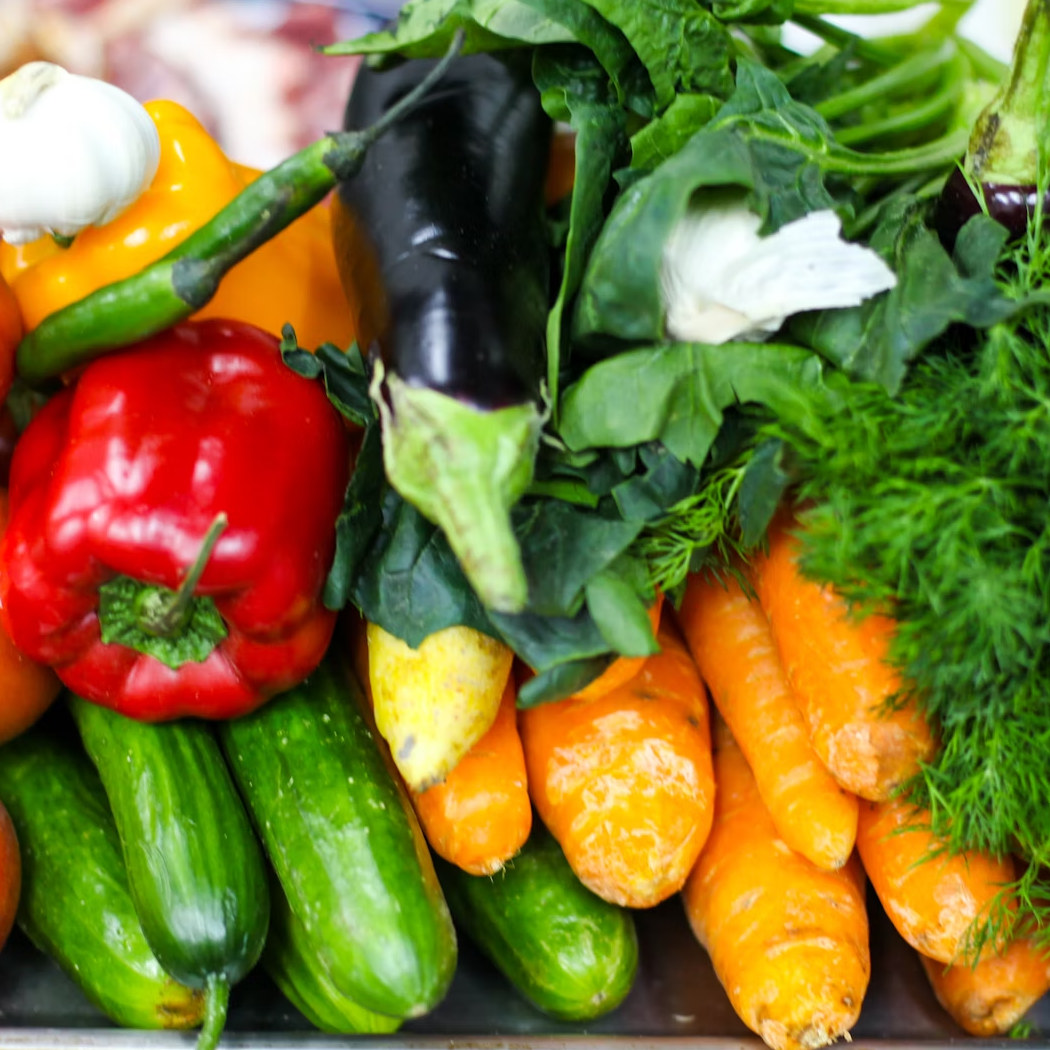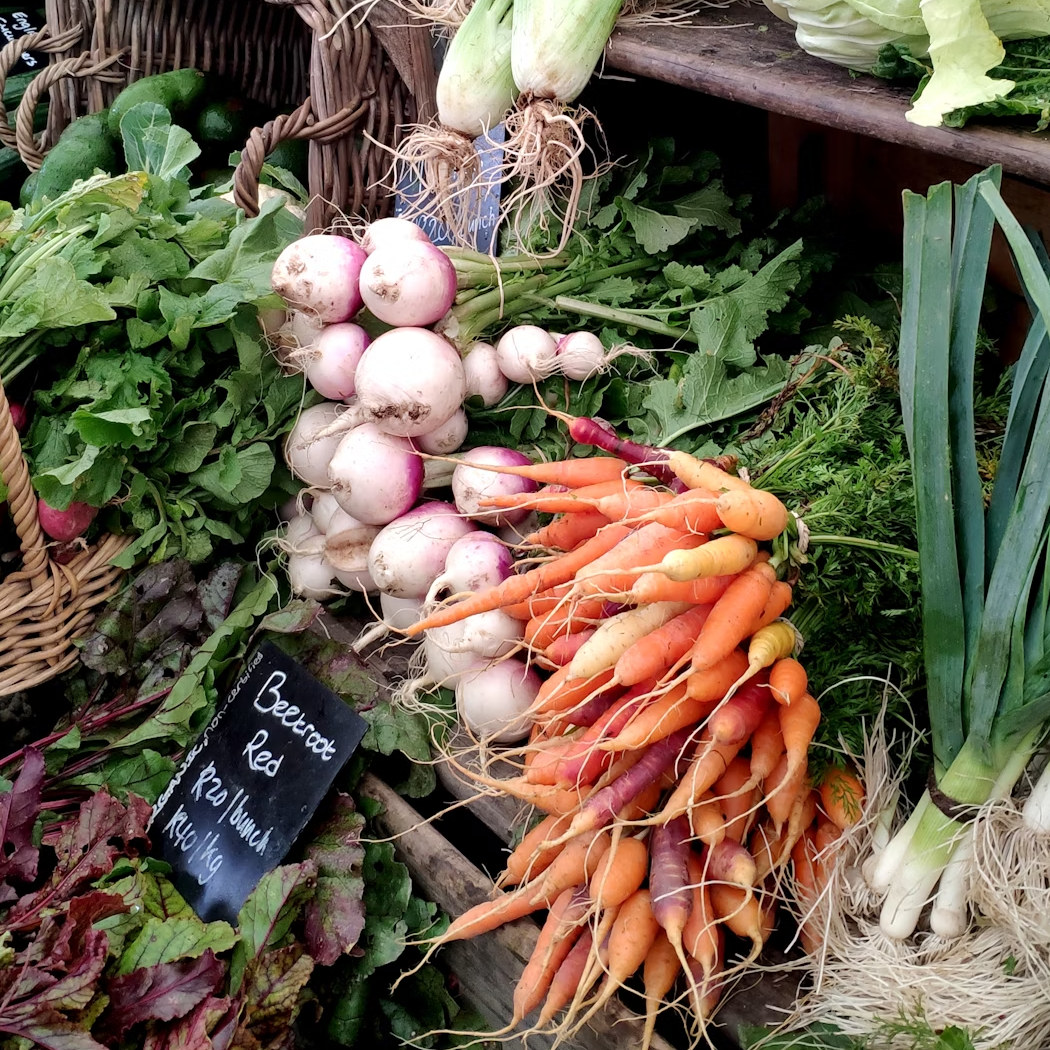News
Organic, Certified Organic, Spray free, Conventional farming… It’s all a little confusing what the differences are, and, does it even matter?
July 09, 2019


The differences between organically and non-organically grown food are quite well known. A meta-analysis of 343 peer-reviewed studies show a very significant difference. In fact, in one test, organic tomatoes were shown to have nearly two thousand times more iron than their non-organically grown counterpart. Which is huge!
But what is the difference between ‘Organic’, ‘Spray Free’ and ‘Certified Organic’?
Let's start with the process of a farm becoming certified organic…
After acquiring a piece of land with the intentions of becoming a ‘Certified Organic’ farmer, you must assess the history of the land, and ensure it has been clean from chemicals for a minimum of seven years.
Next, you need to find a suitable certifying company who will then go through the extensive process of verifying, testing and accumulating the information for your future Certified Organic farm. This entails creating a business plan and farm plan to ensure all crops are accounted for at any given time. This keeps positive control over all organic farmers and their land. If throughout your time of being Certified Organic you add or deduct growing lines of produce, amend your methods of growing, your watering techniques, or even change the areas you are growing in throughout your own land, you must resubmit a farm plan with up to date information.
A team will come and assess your farm, check its history, the accuracy of information provided, and carry out soil and water checks.
Once (and if) approved, you go through an ‘in conversion’ period of 36 months, where you may trade within the certified organic industry, however, you MUST label your produce accordingly and expect a much lower return on produce until fully certified.
ACO is the largest certifying body with over 80% of the industry certified by them.
The application will cost a non-refundable $1500 to apply, plus assessments.
There is an annual fee of $1200 to cover your certificate and annual inspection.
Lastly, you must pay a fee of 1% of al total sales to ACO to maintain the certificate.
As well as the regulated annual inspection conducted on your farm, there are often surprise or ‘spring’ inspections to catch farmers out who are not doing the right thing. These inspections may include soil tests, source of water checks, seed samples, cleanliness of packing shed and storage facility, and much more.
There is also market inspections which are run by the certifying body to further ensure the sales are being conducted ethically and in accordance with the standards. This is generally done by a plain clothed member from the company who would purchase a large variety of produce, will then produce ID and proceed to identify themselves and let the farmer know that the produce will be going to a laboratory for a composition breakdown. There is no avoiding this for a certified organic farmer as you must detail all of your markets, and other forms of produce distribution, on your annual inspection or change/update forms.
There are many struggles when it comes to being a farmer and the difficulties increase exponentially for Certified Organic farmers. The obvious challenges such as natural disasters and climate change are just the beginning. We are further finding new challenges with pests, fungus and diseases which are extremely harmful to all farmers and provide a constant challenge to the farm life. It all becomes very tricky when we take away any possibility of using fast reacting chemicals. All pesticides, fungicides and herbicide chemicals are out of the question for organic growing. With warmer weather, we are finding pests breeding and existing within our produce for at least two months longer than previous years. Manually plucking and removing them from the ecosystem as well as applying Neem oil, White oil, chilli/garlic mixes and companion planting so far are our best methods to negotiate these adversities. Farmers also need to keep on top of the weeding jobs to take out the breeding grounds and hiding locations.
Once you have your growing methods and techniques down, you then need to decide on your distribution methods. The main options are; Local and interstate organic shops, meeting the high and growing international demand for organic produce, sell to whole-sellers or remain self-employed with your local farmers markets.
However, there are generally no requirements to sell produce labelled as ‘organic’ within the local farmers markets, only for produce labelled as ‘Certified Organic’.
This could potentially bring up a few ethical issues to our local distribution avenue. Competing farmers may label their farm or produce as Conventional, Spray Free, Chemical Free or Organic, without an overlooking body or management to uphold the standard, and therefore no consequences to be had. This may be very misleading to customers and therefore cause an ethical dilemma within the market.
These are the definitions we have managed to gather for each one of the above labels:
Spray Free
Often seen as the farmers markets, this is a completely meaningless statement. Spray free from what exactly? Water? Toxic chemicals? non-toxic chemicals? who determines what is ‘toxic’? Glyphosate has been proven carcinogenic by the W.H.O but still is used by all conventional farmers, as the Australian government still considers it as safe. There is no one policing any farmer/seller who uses this term, which proves it is utterly meaningless. ‘Conventional seeds’ are coated in toxic fungicides, can be grown in chemically induced soil, sprout and develop in artificial fertilisers and can logically contain any unhealthy chemicals readily used (or once used) on most farms. (And still be labelled ‘Spray Free’).
Chemical free
Again, another throw-away line. Chemicals are elements, or a combination of elements, with a specific composition and structure. All matter is made of chemicals!
Exactly which chemical does this relate to? the W.H.O has proven that Glyphosate (Roundup) is carcinogenic. Every conventional farmer uses this agri-chemical to poison weeds and defoliate crops. Remember; DDT, Agent-Orange, BPA were all considered ‘safe’ chemicals at one time. The term ‘Chemical free’ is truly meaningless, as no authority polices the use or misuse of this term.
Organic
In a world of weasel words and mis-truths, this one has gained a lot of use as a way to deceive and fool customers. The word ‘organic’ means ‘relating to, or belonging to a group of substances containing the chemical element carbon’… So your shirt and lightbulbs and toilet paper are ‘organic’, they all have a carbon base. In the UK this word is legislation and must mean 'Certified Organic’ in context. This is not the case here in Australia. ‘Organic’ definitely does not mean Certified Organic. Again, there is no policing, no checks, no soil tests, nothing.
Conventional farming
The most common form of modern industrialised corporatised farming, It has a complete reliance on agricultural chemicals to mass produce cheaper produce in a much shorter time frame. The result of this is generally ‘perfect’ looking fruit and vegetables, and in most cases have reduced to no flavour.
It also has complete reliance on artificial fertilisers, fungicides, herbicides pesticides and hormone growth promotants. It uses GMOs, encourages irradiation; produce is grown in/ sprayed with/ dipped in / coated with agricultural grade chemicals, that include known carcinogens. It is environmentally unsustainable, pollutes the land and also the rivers, waterways, reefs and oceans.
Certified organic
A ‘certified organic’ farmer spends years studying and proving their understanding of ‘sustainable agriculture’ before they can become certified. There are five main certification bodies in Australia and they are all governed by AQUIS, a government body, to ensure compliance with the strict organic certification rules and regulations. Every farmer is policed and inspected annually. Every farmer must have an up to date ‘farm plan’ that proves they are complying with the rules and regulations. Their soils are tested. They cannot ever use conventional toxic agri-chemicals. They can be spot-checked. They must prove an ‘audit trail’ of grown and sold produce. They do not use GMO seeds. They do not irradiate. They do not use any glyphosate, fungicides or herbicides. They compost their rich fertile soils. They can use certified organic approved sprays where necessary, and even that is highly monitored.
Soil health is at the very core of certified organic sustainable horticulture. Certified organic produce is consistently proven to be much more nutritious and healthier for human consumption.
(Further information on this can be found if you Google ‘spinning foods’, an eye-opening publication.)
Whilst customers are unaware of the differences, they will make uneducated decisions constructed by appearance and price, rather than by background knowledge, and information. Certified Organic may not be the right path for you or your family. But making an informed decision is the minimum we should all strive for.
For us at Garden of Vegan, we only use 100% Certified Organic produce in all of our meals.
Be the healthiest version of you by ordering a meal box from www.gardenofvegan.com.au
Credit: Uriah Mishtler (Bio Organic Farm)
Related Articles
 News
News
New Organic Agriculture Study. Soil treated with organic fertiliz...
October 15, 2024 News
News
Australia is ranked #1 in organic agricultural land usage! Celebr...
September 19, 2024 News
News
Embracing Organic: Celebrating Australian Organic Awareness Month...
September 12, 2024 News
News
